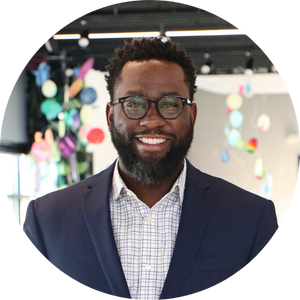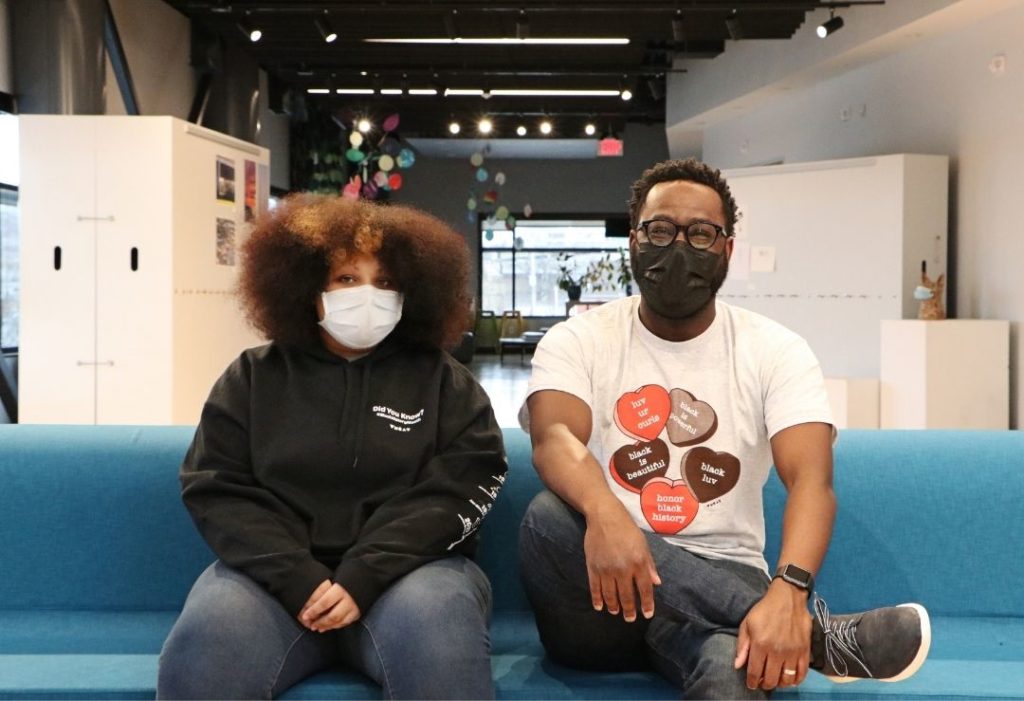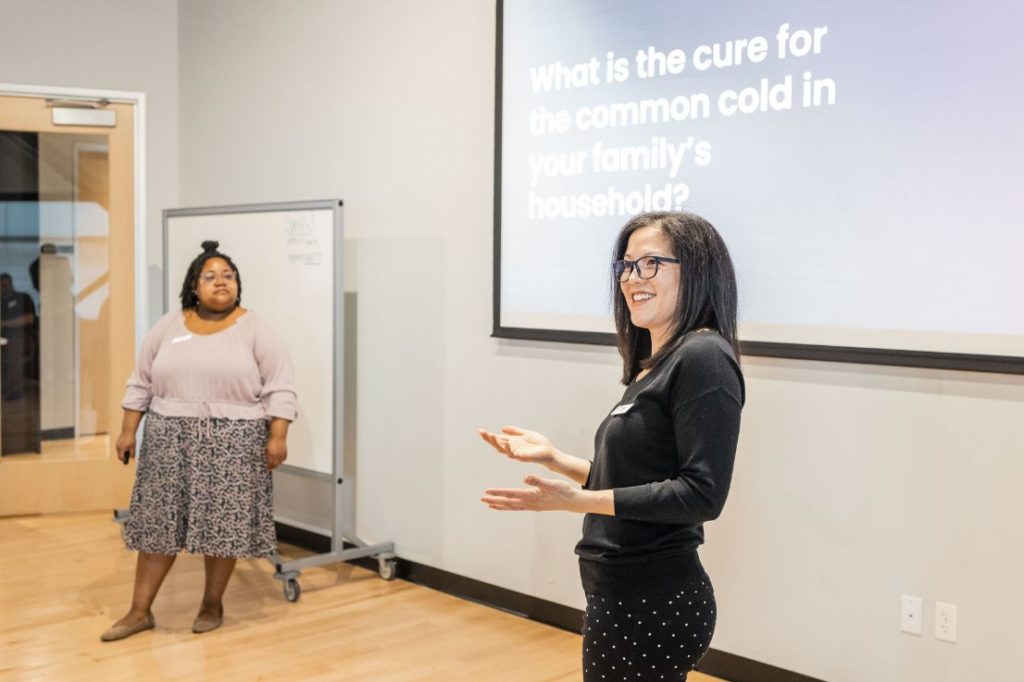Thursday, April 21, 2022
I needed time to process what we’d witnessed.
I watched the video because I had to. That feeling was born out of a sense of duty – to Patrick Lyoya and his family – to bear witness to a tragedy that never should have happened; an obligation to my community as a son of Grand Rapids’ Southeast side; and frankly, the belief that watching it was necessary for my survival and for those who look like me.
I instantly felt anger, heaviness, sadness, hopelessness, and shock. Not shock as in surprise, because we knew the outcome already; a police officer fatally shot Patrick Lyoya on April 4, 2022 one mile from my home. Shock as in, there’s no preparation for watching a life being taken. And I say that from a position of relative privilege, experiencing grief in the wake of Patrick’s death but having never met him. Patrick was a son, father of two, brother to five siblings, and friend to many – people who feel his absence far more acutely, whose lives have been upended and changed forever. People who – and this is rarely said out loud – are expected to move on and embrace a set of community norms with no regard for the price paid to do so.
“I’m disgusted in this country and don’t feel safe no more. I’d rather go back to Africa where I struggled every day but at least I got freedom…than come here and worry about my life. I might get killed.”
These words are from Patrick Lyoya’s brother, shared with the raw emotions of pain, frustration, and sadness through Facebook Live last week. How could it be that a family fleeing violence in pursuit of safety was instead confronted with the legacy of trauma that’s inherent in the American story? How could this happen here, in Grand Rapids.
But really, how could it not happen here?
West Michigan is home to one of the fastest growing economies, hottest real estate markets, natural assets like Lake Michigan and the Grand River, and a culture of philanthropy comparable to any region in the country. Our region is also home to low economic outcomes for Black families, high rates of lead in homes, redlined poverty, disproportionate investment, and racialized policing. We’re living disparate outcomes in every system we are expected to trust.
This dissonance sends a message that our outcomes as a community are rooted in deservedness, as Mia Birdsong would say. That those who have what they need and are thriving are somehow deserving, and those who do not must earn it. Must earn humanity, dignity, food, water, healthcare, education, cultural experiences, and – in the case of Patrick’s story – survival. As a city, region, and nation, we’ve decided who deserves to live. I love this city too much to accept that ideology. I love it enough to interrogate how quality of life is defined here and insist that all deserve access to it.
We at WMCAT join the call for accountability from the Grand Rapids Police Department and the City of Grand Rapids; and an urgent revisiting and implementation of policing reforms and community justice strategies that have been put forth by local organizers for years. We also call for individual and collective interrogation of the dominant narratives that perpetuate inequitable and fatal outcomes in our city.
WMCAT is part of a network of people and organizations committed to reimagining our social contract, committed to creating an equitable and just future. The statements, resources, and voices below are from a few of those doing the work in our community, challenging us collectively, and generously sharing from their lived experience:
“Time and time again, we have been fighting a system that protects police at the expense of our community. Without transformative justice the GRPD will be emboldened to continue their targeted harassment, violence, and dehumanization of our community.”
– A Time for Solidarity & Community Care by Urban Core Collective
“They told us that in America, there’s peace, there’s safety, you’re not going to see killing any more, that it was basically a safe haven … What is so surprising … [the man] supposed to be protecting us is the one who shot my son.”
– Dorcas Lyoya, Patrick’s mother, quoted in ‘That was my beloved son’: family of Patrick Lyoya say police killed their son in an ‘execution’ by Nina Lakhani, The Guardian
“Systemic reform takes more than a checklist approach. It takes more than studies, words, and good intentions. It requires not only vision, but true leadership, commitment to change, and above all else, accountability.”
– Five Years of Failure by Equity PAC
“At A Glimpse of Africa, we are struggling for words, sentiments, and actions as we navigate life after this tragedy. We would like to reassure Patrick’s family that we are here for them, that we condemn his killing in the hands of those sworn to protect, and we continue to demand Justice for Patrick.”
– Public Statement on Patrick Lyoya’s Death by A Glimpse of Africa
1. You don’t have to watch.
2. Take time to process and heal.
3. Step away from social media.
4. Normalize numbness.
5. Continue to seek mental health services.
– 5 Steps for Coping and Processing Trauma by Mental Health Clinicians of Color Grand Rapids
“It is time to put an end to the systemic indifference to Black lives that pervades police culture throughout Grand Rapids, the state, and nation. Accountability requires not just full transparency, but a commitment to fundamentally changing policing so that no more lives are lost.”
– A Black Life Ended: Patrick Lyoya, Father, Son Should Be Alive Today by ACLU of Michigan
“At what point is Patrick seen as a survivor, as someone who came here for sanctuary, someone who wanted to live? Will he be referred to as a leader, or did they notice that he had a smile that could light up a room before they doused his spark?”
– For a moment, the world stopped – April 13, 2022 by Marcel Price, The Diatribe
Right now, two ways to show up for Patrick Lyoya’s family are to 1) donate to support Patrick’s family with funeral and other expenses, and 2) use your voice to call for transparency and accountability (this petition is one way to do so).
In solidarity, 
Jamon Alexander
President + CEO
West Michigan Center for Arts + Technology



